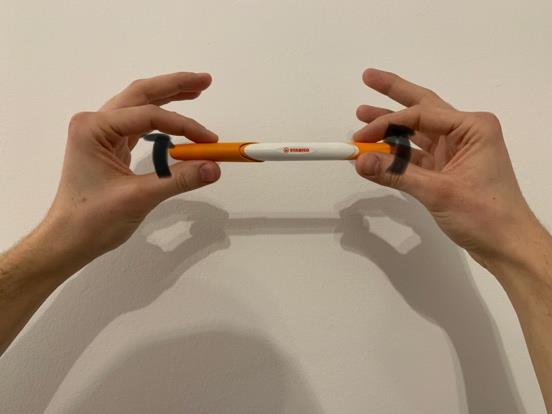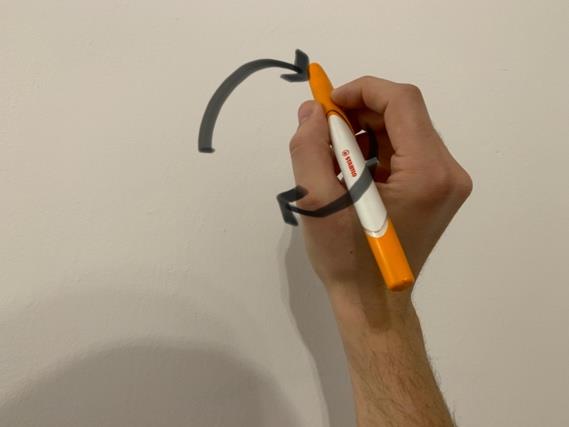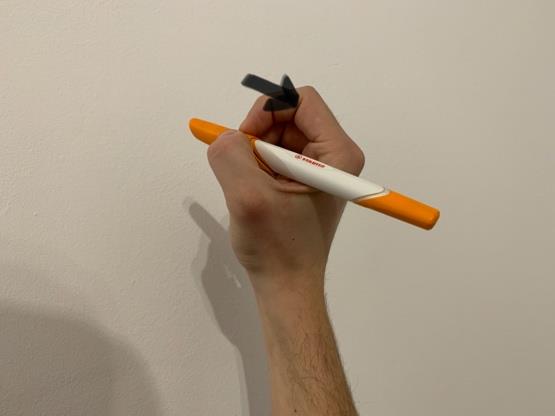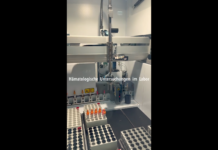Problem
In recent years it has been observed that fine motor and graphomotor skills of preschool and elementary school children have continuously decreased. This can subsequently lead to adverse effects such as learning difficulties, psychosocial stress, posture problems, or chronic headaches [1, 2].
Traditional methods of improving graphomotor skills include graphomotor exercises for handling pens. However, traditional methods are mostly perceived as monotonous and boring by those affected compared to game-based approaches [3, 4].
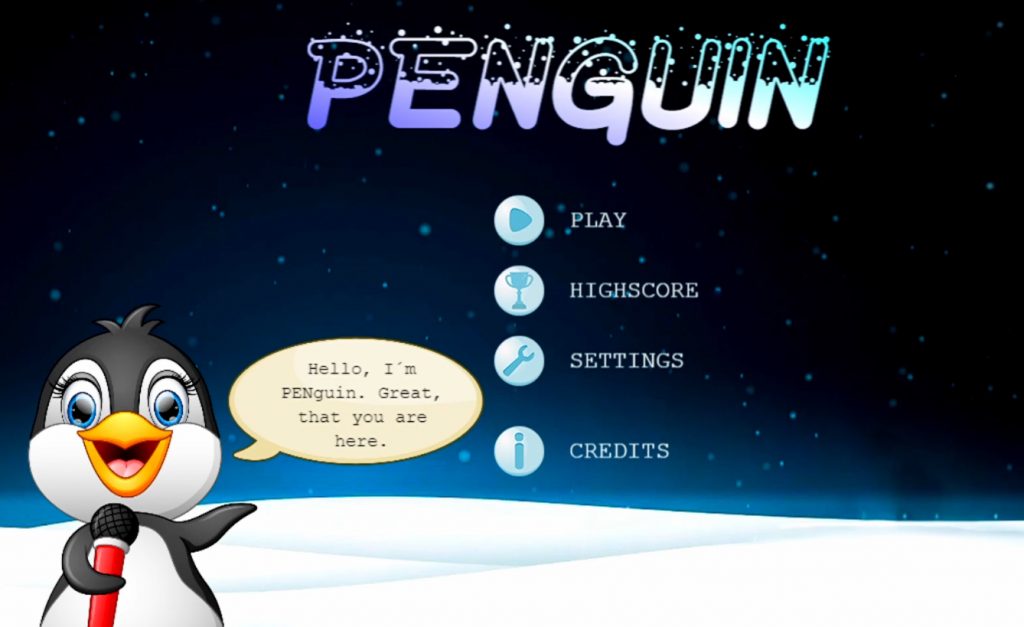
Aim
Therefore, as part of the Master´s degree program, Digital Healthcare at the St Pölten University of Applied Sciences, and in cooperation with STABILO International GmbH the interactive software PENguin (Figure 1) was developed to perform graphomotor movements with the STABILO ErgoPen in a playful way (Figure 2).

Methods
For this purpose, the user utilizes a special pen (Figure 3), which is equipped with numerous sensors to convert manual movements of the hand into digital signals to control the game wirelessly [5].

By executing three different graphomotor exercises (Figure 4) with the ErgoPen, a PENguin is controlled within the application in almost real-time to either move forward or backward, jump, or interact with the game environment.
A project at the St. Pölten University of Applied Sciences Master Program Digitale Healthcare
Project Coach: Dipl.-Sporting. Dr. Mario Heller
FH St. Pölten Master degree programme: https://www.fhstp.ac.at/en/academic-s…
[1] „STEP 2019“, https://www.schreibmotorik-institut.com
[2] C. Marquardt et al., Trends in Neuroscience and Education, 5, 3, 82–89, (2016)
[3] A. K. H. Lai et al., BMC Med Educ, 20, 1, 263, (2020)
[4] F. A. Felipe et al., Physiotherapy, 106, 194–210, (2020)
[5] STABILO® International GmbH,
https://www.stabilo.com/at/education/produkte/grafomotorik-analyse/

